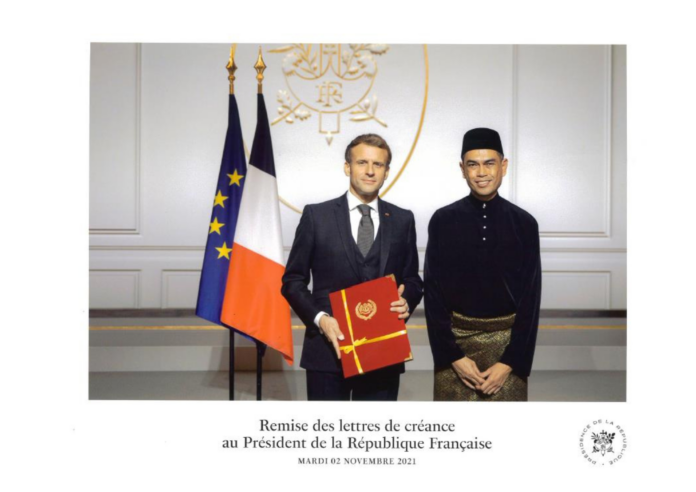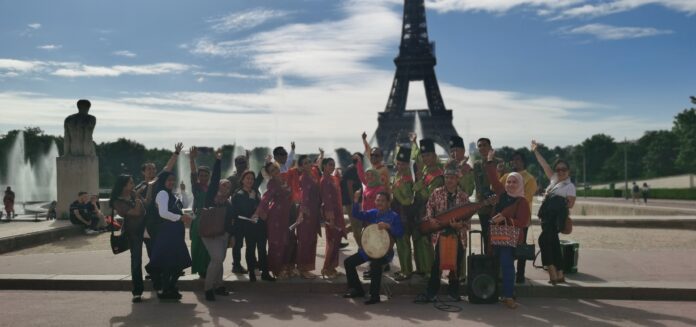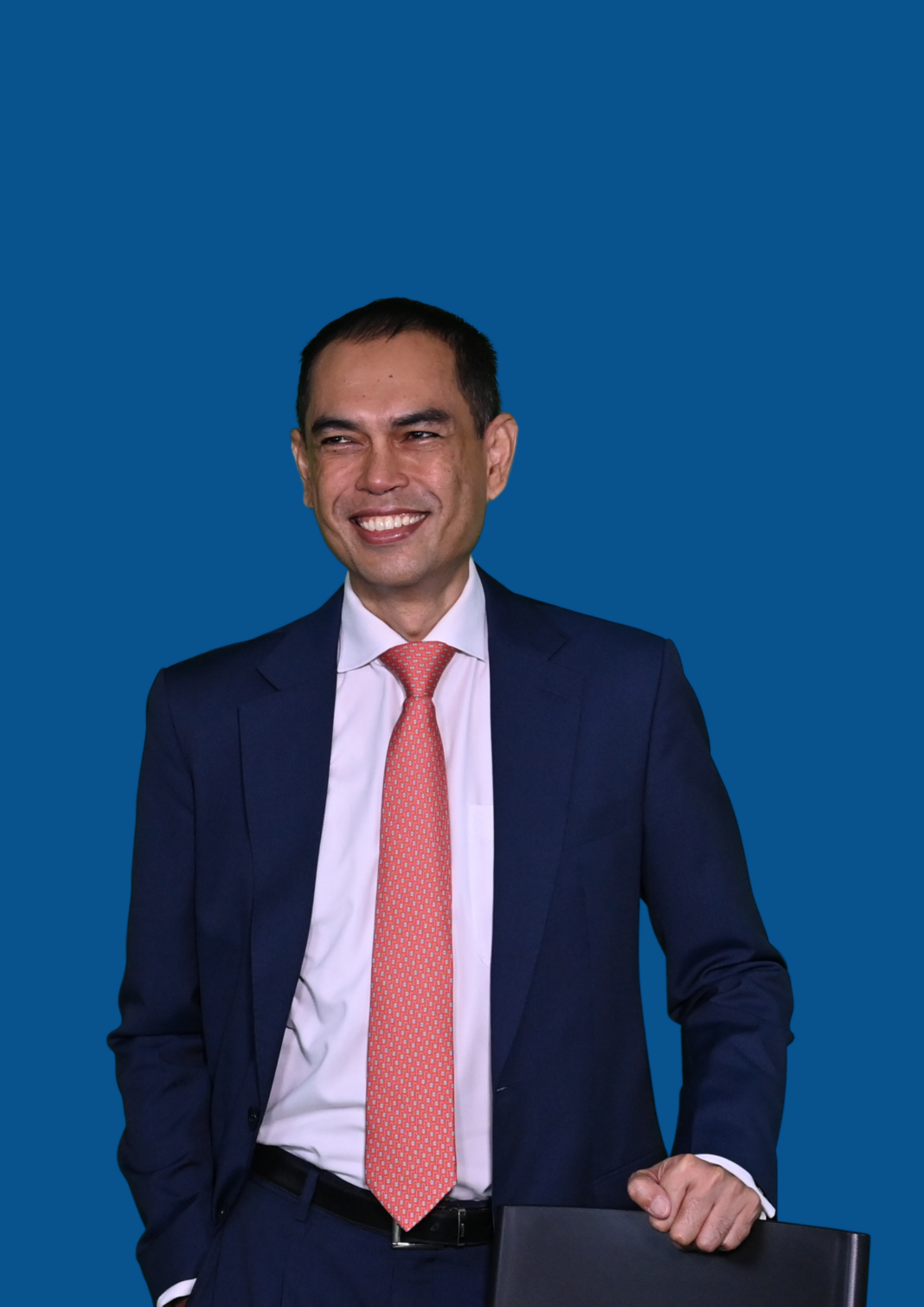Diplomat Magazine met with His Excellency Dato’ Mohd Zamruni Bin Khalid to discuss his views on Malaysia-France relations and other significant issues.
What were your thoughts when you were informed that you would be appointed as Ambassador of Malaysia to France?
When I was informed that I would be appointed as Ambassador of Malaysia to France, I could not figure if it was a blessing or a curse. As a junior diplomat, I was posted to the Embassy of Malaysia in Paris from 2000 to 2002. I was also fortunate to pursue a M.A. (Comparative Politics) at the Institute of Political Studies, Sciences Po between 2004 and 2006.
The Malaysian Government must have calculated their decision to send someone who is au fait or familiar with the country and who already had an established network as its top envoy to France as it is a rare feat in our system! Therefore, returning to France for a second time (or third time if my time as a master’s student is taken into account) definitely comes with higher expectation.

When did you arrive in France to take on your role as Ambassador of Malaysia? How would you describe the Malaysia-France bilateral relations at that point of time?
I arrived in Paris in September 2021, as the world was slowly reopening following the Covid-19 pandemic. Notwithstanding, I could not help but remark how invaluable Malaysia-France bilateral relations were throughout this difficult time. Both our countries had worked closely in repatriating our respective nationals and facilitated passage during international lockdown. Travel restrictions also did not deter high-level engagement. Both our then Foreign Ministers had engaged virtually in February 2021.
I was also happy to learn that there was robust cooperation on scientific research at the height of the pandemic whereby Malaysian virologists were attached at the Institut Pasteur in Paris to share and build expertise on Covid-19 genome sequencing and tracking.

Another important achievement was the acceptance of France as one of ASEAN’s development partner in September 2020. Travel restrictions and lockdown imposed no barrier but rather stimulated both sides to forge meaningful partnership in trying times.
The Covid years had put a brake on many defining sectors of Malaysia-France bilateral relations like trade and investment, tourism and to an extent education. These were among the first challenges I had to address as Ambassador of Malaysia. The post-pandemic landscape was a white canvas and it was only prudent that Malaysia seized the opportunity to reconnect with the French market. Malaysia was already open for business at the point and I was grateful to have the support of the colleagues at the Embassy as well as the Malaysian Investment Development Authority (MIDA); Malaysia External Trade Development Corporation (MATRADE) and Tourism Malaysia who readily doubled efforts to channel focus on Malaysia.

Considering that you have been at your post for two and a half years now, how would you describe Malaysia-France bilateral relations thus far? Are you contented with the way the relations are proceeding?
Today, I am pleased that Malaysia and France relations are at an all-time high. Each recognise the other as a key player – politically and economically in our respective regions. Our political leaders, including ministers and parliamentarians, continue to show commitment to strengthen and deepen bilateral relations between Malaysia and France. This is quantified by the number of high-level visits and exchanges between both sides in recent years. At the senior official levels, we have launched regular bilateral consultations that will facilitate and help us take stock of cooperation in various sectors.
Economically, Malaysia regards France as a significant partner. After all, France is Malaysia’s third largest trading partner in the European Union (EU). Likewise, Malaysia is also France’s third largest trading partner in ASEAN. I must add that Malaysia has one of the most open economies in the world and with our strategic location in the heart of Southeast Asia, this makes us the ideal economic hub. Today, Malaysia is focused on attracting investments in aerospace and automotive as well as green technology. France and Europe are leaders in these sectors and therefore there are potentials for closer cooperation.
The diplomatic and business community aside, I observe that knowledge about Malaysia among the French is still lacking. While East Asia – its history, politics and culture are well known to the French, countries in Southeast Asia do not share the same pedestal. Therefore, I have undertaken to correct this through various outreach programmes to promote Malaysia and build closer people-to-people relations.
To this end, the Embassy in Paris has organised various programmes that showcase our gastronomy (something Malaysia and France have in common) as well as our culture from music and dance to costumes and martial arts. Our focus has been to reach a varied audience to show what Malaysia Truly Asia means.
How would you show what Malaysia Truly Asia means in a city like Paris?
I recall one event we held in Trocadéro, with the Eiffel Tower as background, tourists and locals alike were serenaded by a group of musicians playing traditional tunes on traditional musical instruments while a troop of dancers performed various traditional dances and invited the onlookers to participate. It was a warm summer afternoon but the crowd were just so happy to join in and have a good time.
I am particularly proud of the annual Voyage Culinaire, a flagship event of the Embassy whereby we take our visitors on a culinary journey of Malaysia’s best foods. Last year we brought Malaysian hawker and street food to the heart of Paris! Visitors were able to taste and try their hands at making popular dishes like Nasi Lemak, Roti Canai, Char Koay Teow and Teh Tarik, among others.
In keeping with Malaysia’s commitment to promote Silat, which has UNESCO’s recognition as an intangible cultural heritage, we find every opportunity to highlight this ancient martial art, rooted in the Malay Archipelago. This form of self-defence has stood the test of time, having been in practice since the 7th century during the Langkasuka Kingdom. I am very happy that the practice continues to live on and more importantly more and more French are learning this martial art discipline.



